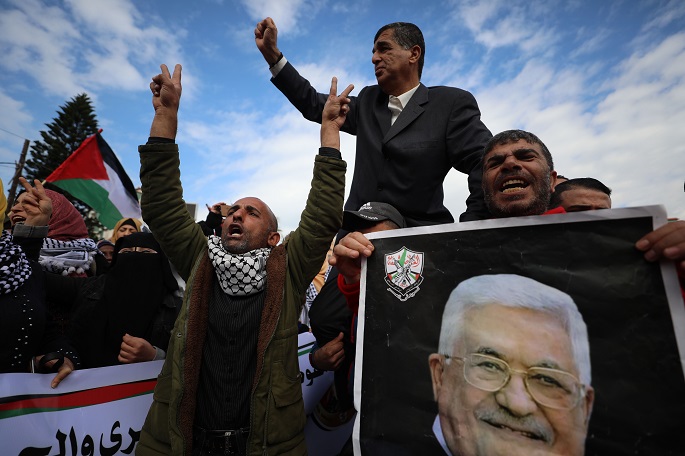Abbas rejects U.S. Mideast peace plan at UNSC meeting
Published : 11 Feb 2020, 23:22
Palestinian President Mahmoud Abbas on Tuesday reiterated the rejection of a newly released U.S. Middle East peace plan, calling it an "Israeli-American proposal."
"I have come to you on behalf of 13 million Palestinians to call for a just peace. That is all. I have come to you today to reaffirm the Palestinian position that rejects the Israeli-American proposal," Abbas told the UN Security Council, which met to discuss the U.S. plan.
The rejection of this plan reaffirms, or is the result of its unilateral steps and the fact that it violates international legitimacy and the Arab Peace Initiative, said Abbas.
"It annuls the legitimacy of Palestinian rights, our rights to self-determination, freedom, and independence in our own state. It legitimized what is illegal: settlements and confiscation of land, and annexation of Palestinian land."
"I would like to reaffirm that this plan or any part in this plan should not be considered as an international reference for negotiations," he said. "This is an Israeli-American preemptive plan in order to put an end to the question of Palestine. It was rejected by us because it considers that East Jerusalem is no longer under the sovereignty of the state of Palestine. That alone is enough for us to reject this plan."
He warned that the plan would put an end to the question of Palestinian refugees. It will end all basis for a peace plan. It means the rejection of all agreements and obligations to establish two states along the pre-1967 lines, said Abbas.
"This plan will not bring peace or stability to the region. And therefore, we will not accept this plan. We will confront its application on the ground."
Showing a copy of a map of the U.S.-proposed two-state solution for Israel and Palestine, Abbas said it looks like a piece of "Swiss cheese," which features large holes.
"This is the summary of the project that was presented to us. This is the state that they will give us. It's like a Swiss cheese, really," said Abbas.
"Who among you will accept a similar state and similar conditions?" he asked.
The U.S. plan includes the entrenchment of occupation and annexation by military force and the strengthening of "the apartheid regime," said Abbas. "This plan rewards the occupation, instead of holding it accountable for all the crimes it perpetrated against our people and our land."
"In this difficult time and before it is too late, I would like to say to (U.S. President) Mr. Donald Trump that the proposed American deal cannot achieve peace and security, because it canceled international legitimacy," said Abbas.
"Who can cancel international legitimacy, international legitimacy, who can annul and cancel it? President Trump did so. It cancels all resolutions of international legitimacy. It cancels all the rights of the Palestinian people. It even decided that East Jerusalem is no longer part of the Palestinian sovereignty. This does not meet the aspirations of a two-state solution (for) Israel and Palestine."
"I wish President Donald Trump will be just, will be fair, and will support the implementation of resolutions of international legitimacy so that we can have a real opportunity for peace between Israelis and Palestinians," he said. "If you impose peace, it will not last. It cannot last."
Tuesday's Security Council meeting was requested by Tunisia and Indonesia after Trump on Jan. 28 revealed a controversial Middle East peace plan, which calls for a two-state solution while recognizing Jerusalem as Israel's "undivided capital." The U.S. plan was immediately rejected by Palestine and the Arab world as well as other countries around the world.
Prior to Tuesday's meeting, the four EU members of the UN Security Council -- Belgium, Estonia, France and Germany -- plus Poland, which has just left the council, said in a joint statement that the U.S. plan "departs from internationally agreed parameters."


